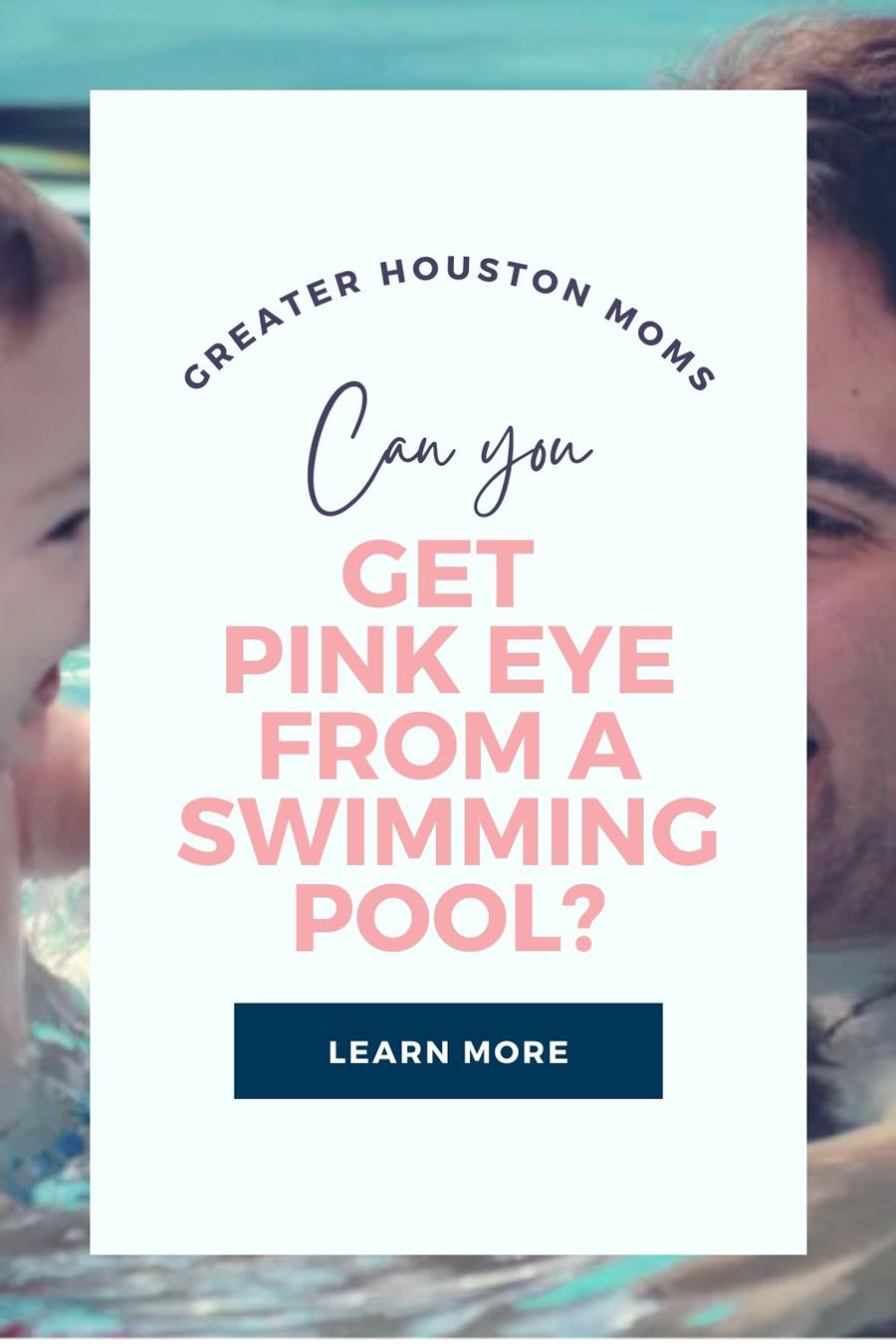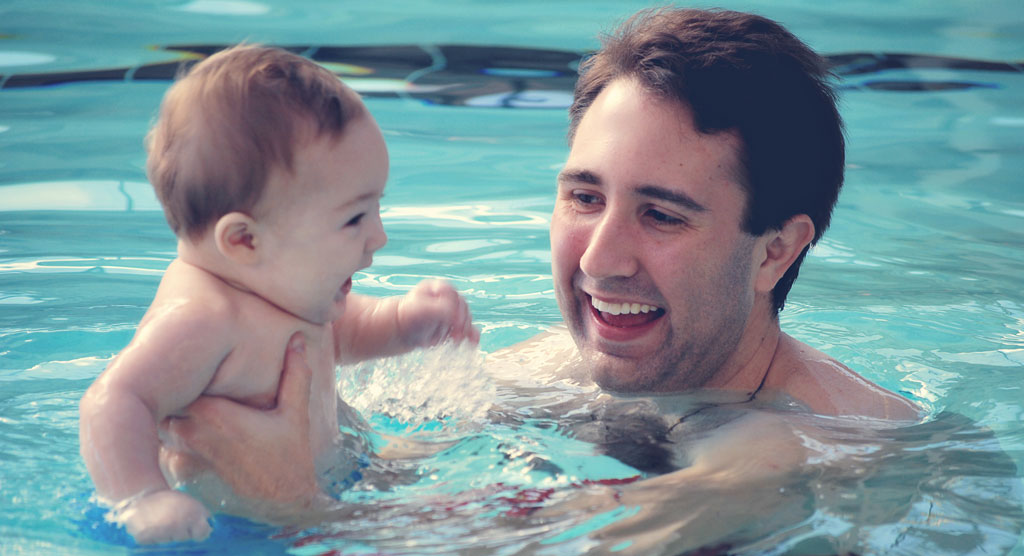Can You Get Pink Eye from a Swimming Pool? …and, Other Fun Things Pools Can Share
Summer is upon us and being in and out of the pool is a given, but is pink eye? We have already started swim team and there have been a few “incidents.” And, by incidents, I mean someone pooped in the pool. They don’t know who, but it is someone who should know better.
If I was that child’s momma…oh man – but I digress.
Then we spent the weekend with a hundred scouting children and the next day my child had a very pink eye. So, was it the pool? Was it the splash pads? Was it the hand railing? Was it the bathroom? Was it the collective ick of a hundred little boys? Who knows, but it led me to wonder – can he get pink eye from the swimming pool? And, if so, what else should we be worried about? Or, is it much ado (no pun intended) about nothing?
What is Pink Eye?
Pink eye, you may be surprised to learn, is not the real name of the infection (shocking, I know!). It is, in fact, the literal description of conjunctivitis? And, conjunctivitis is “an inflammation or swelling of the conjunctiva…the thin transparent layer of tissue that lines the inner surface of the eyelid and covers the white part of the eye.”(1) Generally, the eye white part of the eye will be “pink” and may be swollen, crusty from discharge, and/ or sensitive to light.
It can be in one eye. Or both. It can be contagious. Or not. It can be bacterial. Or not. It can develop from an allergic reaction. Or not.
So the short answer is yes, you can get pink eye from a swimming pool but in that case, it is probably an allergic reaction irritated by the chlorine in the pool. If you are prone to allergies get in the habit of wearing goggles in the pool.
And, if you do have pink eye stay out of the pool. The chlorine will exacerbate the irritation and if you are contagious you may spread it through towels or touching things after you wipe water from your eyes.
When and How to Treat Pink Eye
The course of treatment will depend on the type of pink eye you or your child may have. And, to do that you may need to visit the doctor as they may prescribe nonsteroidal anti-inflammatory medications and/or a topical steroid eye drop. In the case of a bacterial infection, antibiotic eye drops may be necessary. If it is viral you are pretty much out of luck and just need to try to maximize comfort while the virus runs its course.
Bacterial and viral infections are very contagious, to minimize the impact the number one thing to do, as always, is frequent and thorough hand washing. To be on the safe side you will also want to change towels and face cloths daily (possibly your pillowcase too) and definitely toss mascara.
What Else Can I Catch from a Public Pool?
One of the best ways to not get cooties from the pool is by practicing and spreading the knowledge of good pool hygiene. Showering before swimming will help to minimize the irritating byproducts formed when urine, perspiration,?and cosmetics combine with chlorine.
Unfortunately, illnesses from pools happen. Some of the most common are:
Diarrhea
This one comes from a parasite called cryptosporidium. It comes to the pool via feces. And, not just the big blowouts. It can come from trace amounts off of an infected person. The worse news is that it is chlorine resistant and lives a long time without its host.
Rashes
Hot Tub Rash is one such rash, it is an itchy skin infection that usually shows up in areas covered by your bathing suit. Chlorine does kill the germ that causes it but chlorine breaks down faster in warm water, hence you will be more susceptible to it in a hot tub. To minimize the risk limit your time in a hot tub, shower with soap after, and wash your bathing suits. Good news it usually clears up on its own in a few days. (2)
Ear Infections
Swimmer’s Ear is a very common pool related infection caused when infected water gets into the ear canal. It can be very painful and is usually treated with antibiotic ear drops.
It can be confused with a middle ear infection, which is not the same. If you can wiggle the outer ear without pain or discomfort then it is probably not swimmer’s ear.
Try to keep ears and dry as possible and drain all the water out of ears after swimming. Don’t remove ear wax – it helps to protect your ear canal from infection.
Respiratory Infections
Have you heard of Legionnaires’ Disease? It’s from Legionella and you can get that from infected steam or mist. It is more likely to affect those who are over 50, have weakened immune systems, chronic lung issues, and smokers.
And, More!
Water is just a really great carrier for infections and diseases. So, there is actually a lot that can spread. Some other fun ones are E. coli, Hepatitis A, Shigellosis, Giardiasis, and Norovirus.
I Need Some Good News, What Can’t I Get from a Pool?
Huzzah! Rejoice! You and your kids probably won’t contract head lice. While the water and chlorine will not kill the lice they are unlikely to let go but don’t share towels.
You are also safe from MRSA (or staph)!? Again, you can get it from the facility but you are safe to go into the water. But, don’t go into the water if you have a skin infection – that’s not cool and super nasty.
Pinworms are also rarely spread through swimming pools. So, if you or your kiddo gets a case of itchy bum then it was probably that unwashed fruit or playing in a sandbox.
Also, it is extremely unlikely to pick up a Sexually Transmitted Infection (STI) from a pool.
Alright, Let’s Go Swimming!
I know at this point you may be thinking, “Cool I’ll just stay home and let my kids run through the sprinklers like it’s 1978.” but you can take steps to minimize your chances of illness and infection.
- First, try not to ingest the water and teach your kids not to drink the water (or catch sprays from splash pads and fountains in their mouths).
- Also, ensure the pool you go to is well maintained. You should be able to smell the chlorine.
- When you are done shower and rinse off excess chlorine and chemicals.
Sources
(1) Conjunctivitis, American Optometric Association
(2) 3 Things You Can Catch from a Pool, Health.com
(3) Recreational Water Illnesses,?Centers for Disease Control and Prevention







Very interesting article! I like the info provided by you about pink eyes. Thanks for sharing the great article.